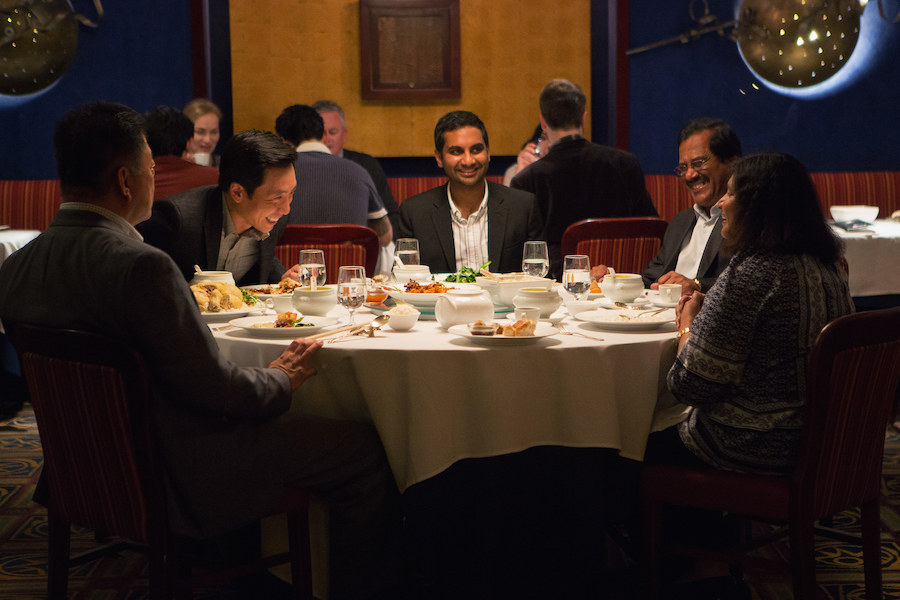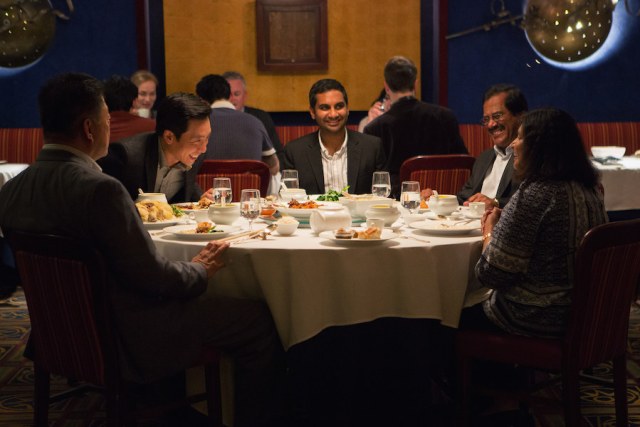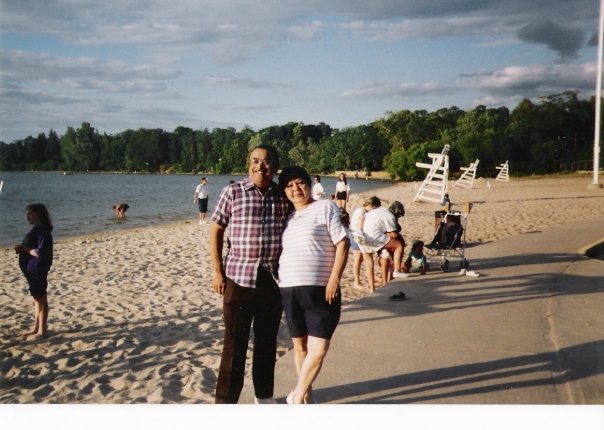Children of Immigrant Parents React to Poignant Episode of Aziz Ansari’s Master of None

If you’ve watched Aziz Ansari’s new Netflix show, Master of None, you know that it deals incisively and hilariously with issues like gender, race, and generational differences. Episode Two, “Parents,” takes a stunning look at the last two as Dev (Ansari) and Brian (Kelvin Yu) deal with their parents and show how they feel about their parents lives versus what their parents have actually experienced in their lives. It’s an episode that anyone with parents from cultures outside the United States will relate to.
Buzzfeed did a great piece where they asked eleven children of immigrant parents how they felt about that particular episode, and it’s pretty awesome. Here are some of the great responses:
I knew that my parents met in Japan, got married in Tokyo, and moved to London — but then moved to New York within the year. For whatever reason, it never really occurred to me to ask why they left London so quickly. It wasn’t until earlier this year when my mom was meeting my boyfriend for the first time that she explained why they left: My dad had gone to Tokyo University, one of the toughest universities in Japan. But essentially, when he moved to London, there was a big class and cultural difference between my dad and his co-workers that they couldn’t reconcile. So my dad, through Japanese connections in New York, came with my mother to establish themselves here, where my sister and I were born soon after.
Seeing Dev and his friend realize that they had no idea where their parents came from was a very familiar story. We know our parents worked hard, but somehow never get around to asking how hard it was. I personally can’t imagine the kind of balls it takes to leave all of your family behind to come to a completely different country.
—Mariko Kunitomo, 23
I’ve never seen anything so relatable on television before. The episode reminded me of my parents so vividly — all the hilarious things they say, what they’ve gone through to get to where they are today (the scene where Dev’s parents are eating alone made my heart hurt), and of course, how much they care, even if they don’t say it all the time.
The episode did such a cool job of illustrating some of the many complexities of being raised by Asian immigrants in America. I think it left a ton of people wondering why we haven’t seen something like this before. —Sapna Maheshwari
The moment in the episode that really resonated with me was when Dev scheduled a weekly call with his parents. It was a small gesture, but you could tell he was excited to have found a way to become closer to his parents, particularly as an adult, without a lot of fanfare. They just wanted to talk to him, to know what’s going on with his life, that’s all. It’s a moment that I think a lot of us could relate to as children of immigrants, but also as adult children of immigrants, who sometimes struggle with how to cross both a cultural and generational divide to be close.
After watching the episode, and then maybe possibly crying a lot over Aziz’s Instagram message about thanking our parents, I forwarded it to my own mom and dad, whose families left Cuba to build a tough but eventually better life here. My dad’s response was that Aziz’s message was ‘very sweet… and very smart,’ and ‘I love you. Never tire of saying it.’ —Alex Alvarez, 31
It seems weird for me to talk about my experience of the episode. After all, Puerto Rico is technically part of the United States (Puerto Ricans have been US citizens since 1917). However, the episode totally resonated for me, too. Particularly since my parents were much older – they were each born in 1935 – and so not only came from a Spanish-speaking culture (my dad in elementary school, my mom in her early 20s), but also from a different time. Being Puerto Rican meant something different in 1950s and 60s New York (you’ve seen West Side Story, right? It was sort of like that, but not as musical), and I think they brought that with them and put it into raising my older bro and sis and, fifteen years later, me.
What stood out for me in the “Parents” episode, is the fact that there’s so much about our parents lives that we not only don’t know, but don’t even think to ask. It’s a lot easier to think them annoying or stifling than to ask them why they do the things they do. My parents have both passed away – my mom in 2006, my dad in 2014 – and it wasn’t until much later in their lives that I learned certain stories from their pasts that put so many of my childhood experiences into sharper focus. Ohhhh, THAT’S why they’re this way. Yes, because they’ve lived a life long before you full of all sorts of stuff they’ve likely tried to shelter you from.
I’m so glad that I thought to ask them certain things before they died, and if the “Parents” episode of Master of None has taught us anything, is that we should ask for those insights. Ask for those stories. They’ll explain so much and likely give you a greater insight into how awesome your parents actually are.
—Please make note of The Mary Sue’s general comment policy.—
Do you follow The Mary Sue on Twitter, Facebook, Tumblr, Pinterest, & Google +?
Have a tip we should know? tips@themarysue.com

